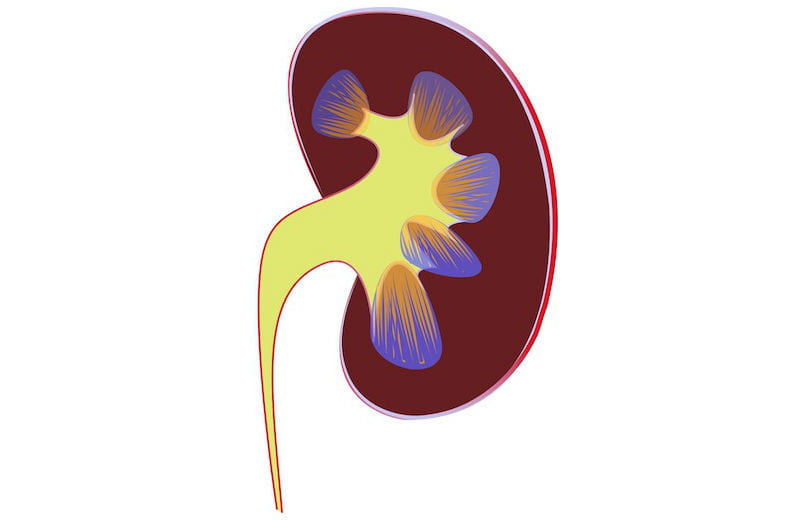Kidney stones are hardened salt and mineral deposits that are formed in the kidneys. These stones can then travel to all parts of the urinary tract. These stones can occur in a variety of sizes and can become a very serious health issue.
As stones continue their movement the pain associated with these stones can change both in location and in intensity.
Single, definitive causes for kidney stones are often difficult to determine when an outbreak of kidney stones occur. However, there are many identifiable factors that are known to contribute to the development of stones.

1. Genetics
It has long been observed that individuals from families that have a history of kidney stones are more pre-dispositioned to experience stones themselves. Also, individuals that have endured prior bouts with stones are more likely to face this challenge again later in life.
The report of a recent study done at Washington School of Medicine in St. Louis seems to provide some insight into genes that provide causes for the tendency of some individuals to be more susceptible to suffering from stones than others.
A genetic variation in the genes claudin-14 is blamed for increasing an individual’s chances of developing kidney stones by 65%. Claudin-14 is typically not active in the kidney but individuals that possess this gene variation can activate claudin-14 in the kidneys by consuming a diet high in calcium or salt and then not drink enough water.
2. Dehydration
Failure to provide the body with sufficient water for drinking is a certain way to increase the likelihood of developing kidney stones. This can occur more in individuals who live in warm climates, especially when working outside in the heat.
For most people, 8 to 10 glasses of water a day will be sufficient to eliminate dehydration as a risk factor for stones. A rule of thumb to use is, if the urine is light and clear, you are probably drinking enough water. Caffeinated drinks such as coffee, tea, and some energy drinks should be consumed in moderation as caffeine has been known to exacerbate dehydration issues.
3. High Protein Diets
The over-consumption of animal protein can be problematic in the fight against kidney stones. High protein diets increase the levels of uric acid in the body. To compound this problem a high protein diet also inhibits the body’s production of citrate. Citrates are a chemical in urine that prevents the formation of stones.
If a tendency toward kidney stones is present, the individual should limit their daily consumption of meat and poultry.
4. High Sodium Diets
A high sodium diet increases calcium and decreases the stone inhibitor, citrate resulting in an increased risk of kidney stones. In addition to this fact, high sodium diets limit the effectiveness of medications such as hydrochlorothiazide in decreasing calcium levels.
A five-year study referenced here observed the effects of reducing a group pre-dispositioned to the forming of stones to a daily intake of 1200 mg of sodium. The result was 50% reduction in the rate of reoccurrence for stones. It was also noted that diets that were low in both sodium and protein resulted in lower levels of calcium than was experienced with low calcium diets.
The average daily consumption of sodium by an American is 3500 mg. This is significantly higher than the 2300 mg intake that is recommended by the FDA.
5. High Sugar Diets
High sugar diets can precipitate kidney stones by altering in the body. This happens because excess sugar can disrupt the absorption of calcium and magnesium. The over-consumption of sugars has resulted in stones being present in children as young as five years old.
A study completed in South Africa found that soda drinking influence conditions in urine that cause the development of calcium oxalate kidney stone formations. High sugar diets can also cause an unhealthy growth in the size of the kidneys as well as pathological kidney transformations.
6. Obesity
Obesity is a leading cause of kidney stones by causing insulin resistance as well as a condition known as compensatory hyperinsulinemia. These conditions are metabolic imbalances that can potentially lead to calcium-containing stones. Hyperinsulinemia can also increase excretion levels of calcium through the urine.
Larger body mass indexes are also associated with increased excretion of uric acid and oxalate through the urine. The biggest factor for obese individuals experiencing a higher rate of stone formation, however, seems to stem from the fact that obese individuals tend to consume diets higher both in sodium and animal protein.
Obesity has been shown to double an individual’s odds of developing stones.
7. Digestive Diseases
Chronic inflammation of the bowels is one of the digestive diseases that can alter the digestive process in a way that affects the body’s absorption of calcium and water. This increases the presence of substances in your body that can lead to the formation of stones.
Chronic diarrhea is associated with lowered levels of citrate in the urine. Low levels of citrate are a contributing factor in one-third of kidney stone cases.
8. Digestive Surgeries
Gastric bypass surgery is one of the digestive surgeries that has been known to disrupt the body’s normal processes for mineral absorption and water. And while not thought to be a proximate cause for stones, any surgical procedure that involves the digestive system can alter the body’s absorption of minerals which can then possibly lead to a higher production of stone forming materials in the urine.
The pain of passed kidney stones is a horror known to many Americans. The reason for the formation of these stones are varied and the cause of kidney stones is not always directly discernible. However, careful consideration to a few dietary changes along with increased water intake can bring relief to many stone sufferers.